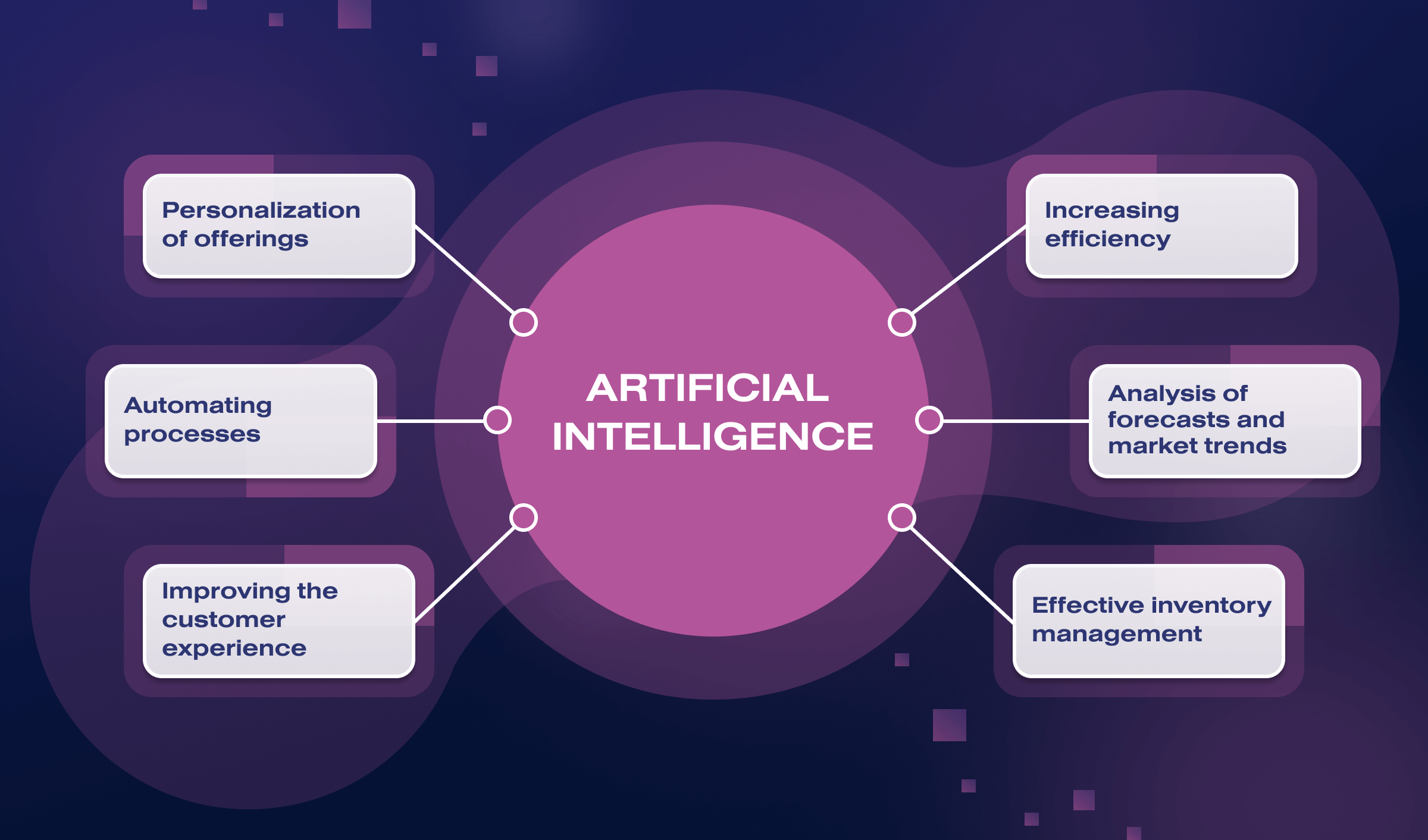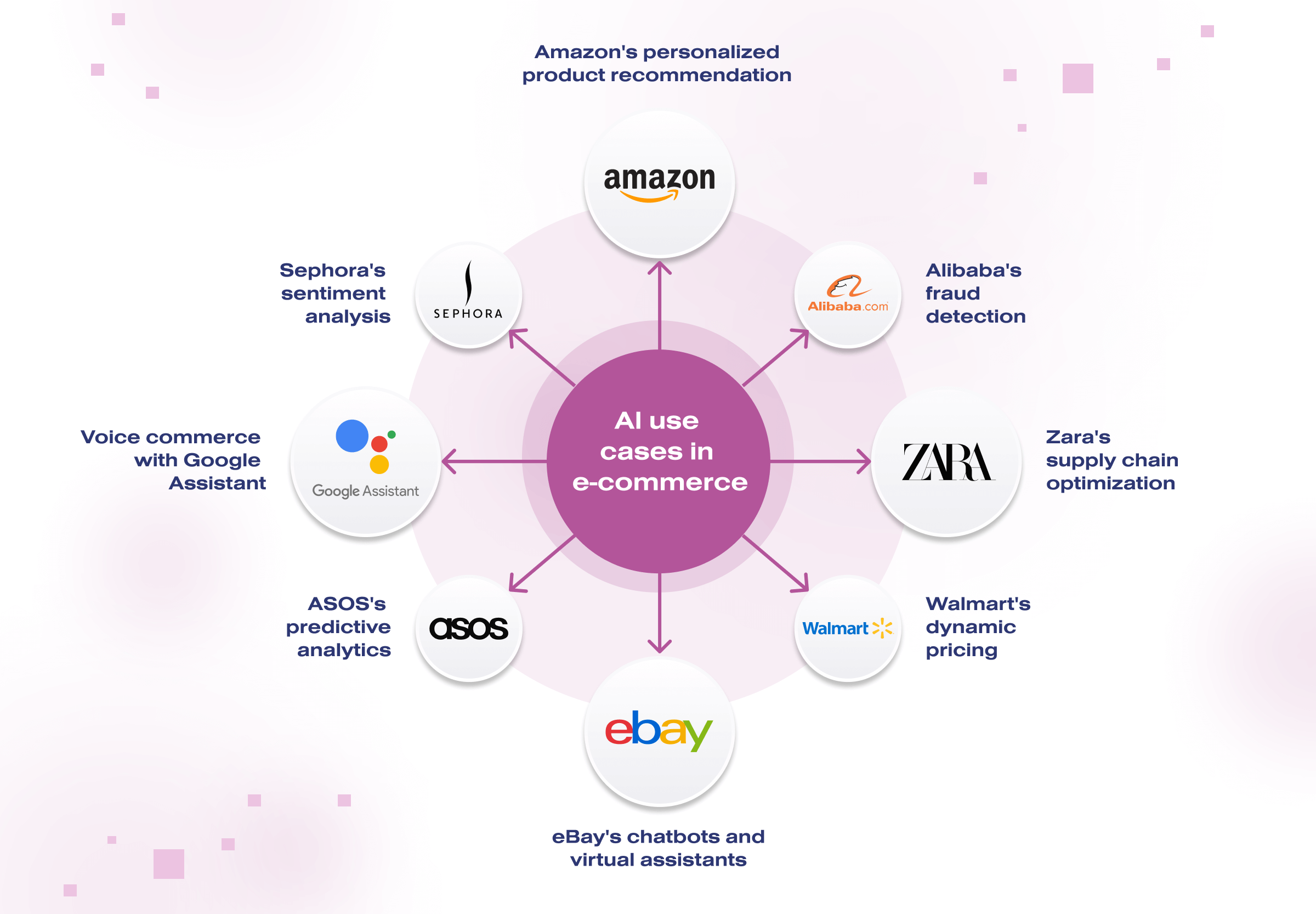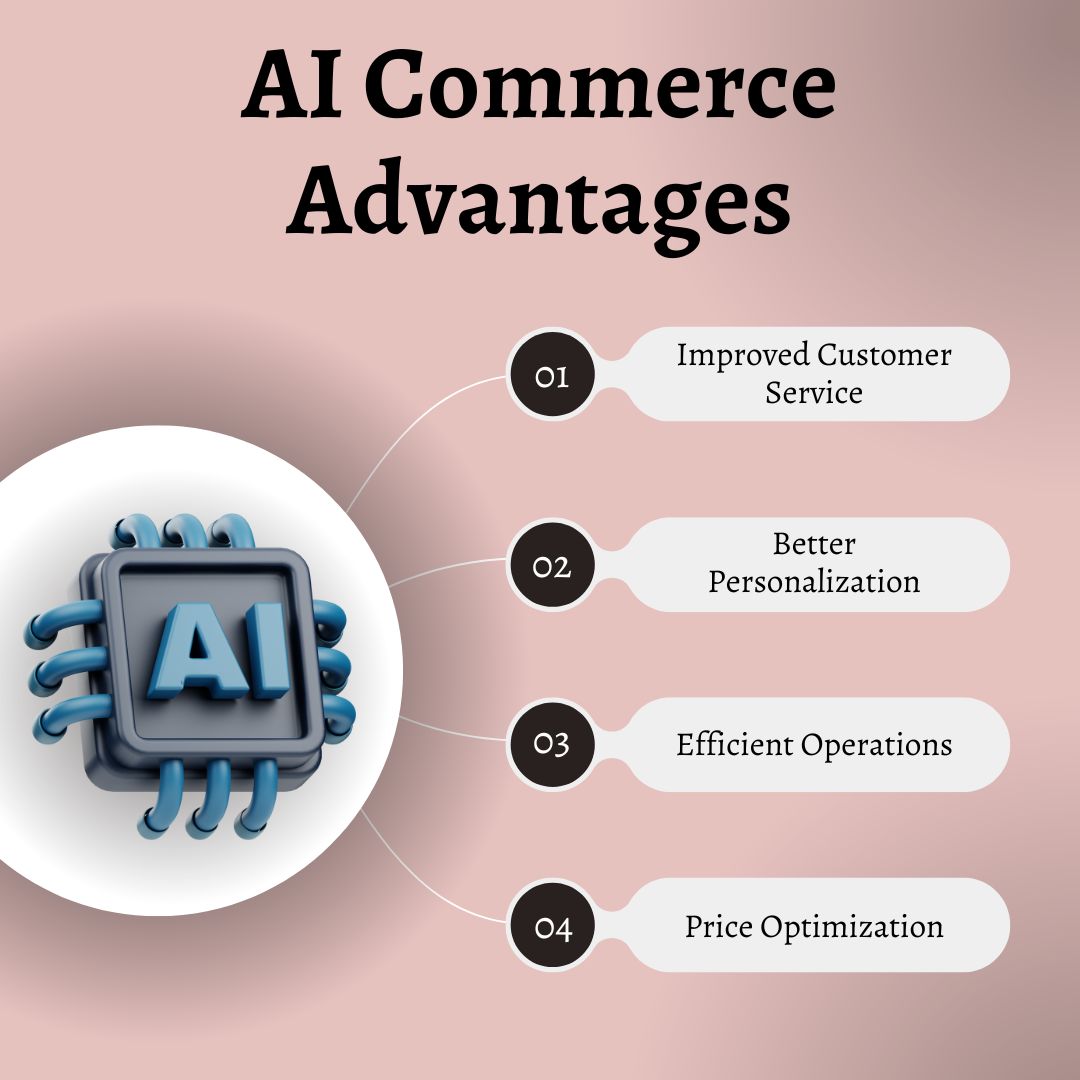# The ai Advantage: Revolutionizing E-commerce for Businesses and Shoppers
Remember when online shopping felt a bit clunky? Finding what you wanted could be a treasure hunt, and sometimes, the recommendations were so off-base they were laughable. Well, those days are fast becoming a distant memory, thanks to the incredible power of Artificial Intelligence. AI isn’t just a buzzword; it’s a game-changer that’s fundamentally reshaping the e-commerce landscape, making it smarter, more efficient, and way more enjoyable for everyone involved.
Personalization on Steroids: Knowing What You Want Before You Do
One of the most immediate and impactful benefits of AI in e-commerce is its ability to deliver hyper-personalized experiences. Gone are the days of generic product displays. AI algorithms analyze a colossal amount of data – your Browse history, past purchases, even how long you hover over certain items – to understand your unique preferences.

Smarter Recommendations, More Sales
This means when you land on an e-commerce site, you’re not just seeing random products. Instead, you’re presented with recommendations that feel almost tailor-made for you. Think about it: Amazon suggesting that specific book you’ve been meaning to read, or a fashion retailer showcasing outfits that perfectly match your style. This isn’t magic; it’s AI at work, predicting what you’re likely to be interested in, which, in turn, significantly boosts conversion rates for businesses.
Dynamic Pricing for the Win-Win
AI also allows for dynamic pricing. This isn’t about ripping anyone off; it’s about optimizing prices in real-time based on a multitude of factors like demand, competitor pricing, and even your Browse behavior. For businesses, this means maximizing profits and reducing unsold inventory. For consumers, it can sometimes mean getting a better deal, especially if demand is low. It’s a delicate balance, but when done right, it benefits both sides.

Streamlining Operations: From Warehouse to Your Doorstep
Beyond the customer-facing elements, AI is a powerful tool for optimizing the backend operations of e-commerce businesses, leading to greater efficiency and cost savings.
Predictive Analytics for Inventory Management
Imagine never running out of a popular item or being stuck with a warehouse full of products no one wants. AI makes this a reality through predictive analytics. By analyzing sales data, market trends, and even external factors like weather forecasts, AI can accurately predict demand for specific products. This allows businesses to optimize their inventory levels, reducing waste, minimizing storage costs, and ensuring products are always available when customers want them.

Automated Customer Service: Always On, Always Helpful
Remember waiting on hold forever to talk to a customer service representative? AI-powered chatbots are revolutionizing customer support. These intelligent bots can handle a vast array of common queries, from tracking orders and processing returns to answering product questions, 24/7. This frees up human agents to deal with more complex issues, improving overall customer satisfaction and reducing operational costs for businesses.
Fraud Detection: Protecting Your Business and Your Customers
Unfortunately, where there’s money, there’s often fraud. AI is proving to be an invaluable asset in the fight against online fraud. AI algorithms can identify suspicious patterns in transactions, flagging potentially fraudulent activities in real-time. This protects both businesses from financial losses and customers from having their financial information compromised, building trust and security in the online shopping experience.
Enhancing the Customer Experience: Beyond Just Buying
AI isn’t just about making transactions smoother; it’s about enriching the entire customer journey, making it more engaging and enjoyable.
Visual Search: See It, Find It, Buy It
Ever seen something you love in a magazine or on social media and wished you could instantly buy it? Visual search, powered by AI, makes this possible. You can simply upload an image, and the AI will scour product catalogs to find similar or identical items. This opens up entirely new avenues for product discovery and makes impulse purchases even easier (and more tempting!).
Voice Commerce: Talking Your Way to a Purchase
With the rise of smart speakers and voice assistants, voice commerce is becoming increasingly prevalent. AI is at the heart of this, enabling natural language processing that allows customers to search for products, make purchases, and even track orders using simple voice commands. This offers a hands-free, convenient shopping experience, especially for busy individuals.
Augmented Reality (AR) and Virtual Try-Ons: Bridpping the Gap
One of the biggest challenges in online shopping, especially for apparel and furniture, is not being able to physically interact with the product. AI, combined with AR, is changing this. Imagine trying on clothes virtually to see how they look on you before buying, or placing a virtual piece of furniture in your living room to see if it fits the aesthetic. This reduces returns, increases customer confidence, and makes online shopping a more immersive experience.
The Future is AI-Powered: What’s Next?
The benefits of AI in e-commerce are already vast, but we’re only scratching the surface of what’s possible. As AI continues to evolve, we can expect even more sophisticated applications that will further revolutionize how we shop and how businesses operate online. From hyper-personalized product creation to fully autonomous supply chains, the future of e-commerce is inextricably linked with the advancements in artificial intelligence. Businesses that embrace AI now will be the ones that thrive in this increasingly competitive digital landscape, offering unparalleled experiences that keep customers coming back for more.
Conclusion
Artificial intelligence is no longer a futuristic concept; it’s a present-day reality that is fundamentally transforming the e-commerce industry. From providing highly personalized shopping experiences and streamlining complex backend operations to enhancing customer service and preventing fraud, AI offers a wealth of benefits for both businesses and consumers. By embracing AI, e-commerce companies can not only improve efficiency and profitability but also cultivate deeper customer relationships through more intuitive, engaging, and secure online interactions. As AI continues to advance, its role in shaping the future of online retail will only grow, making it an indispensable tool for success in the digital age.
Frequently Asked Questions
How does AI personalize my shopping experience?
AI personalizes your shopping experience by analyzing your past purchases, Browse history, search queries, and even how long you spend on certain product pages. It then uses this data to recommend products, offers, and content that are most relevant to your individual preferences and needs, making your online shopping feel much more tailored to you.
Can AI replace human customer service entirely?
While AI-powered chatbots can handle a significant portion of routine customer service inquiries, they are unlikely to entirely replace human customer service. Complex issues, emotional situations, or unique problems often require the nuanced understanding and empathy that only a human can provide. Instead, AI complements human agents by freeing them up to focus on more challenging and high-value interactions.
Is AI only for large e-commerce businesses?
No, AI is becoming increasingly accessible to businesses of all sizes, including small and medium-sized enterprises (SMEs). While large corporations might invest in custom-built AI solutions, many off-the-shelf AI tools and platforms are available that can help smaller businesses with tasks like personalized recommendations, inventory management, and customer service automation without requiring a massive upfront investment.
How does AI help prevent fraud in online shopping?
AI helps prevent fraud by continuously monitoring and analyzing vast amounts of transactional data. It identifies unusual patterns, anomalies, and behaviors that deviate from typical customer activity, such as multiple failed login attempts, unusually large purchases from new accounts, or purchases from high-risk locations. When suspicious activity is detected, the AI can flag it for further review or even automatically block the transaction, protecting both the consumer and the business.
What are some future trends for AI in e-commerce?
Future trends for AI in e-commerce include even more sophisticated personalization, such as AI-driven product design and creation based on individual preferences. We’ll likely see further integration of AI with augmented and virtual reality for truly immersive shopping experiences. Expect advancements in predictive logistics, leading to faster and more efficient delivery. Additionally, AI could enable hyper-local fulfillment and more autonomous retail operations, further blurring the lines between online and offline shopping.

